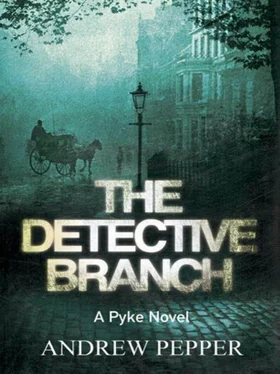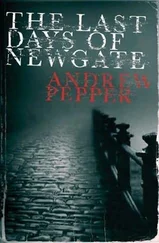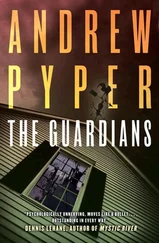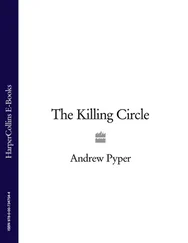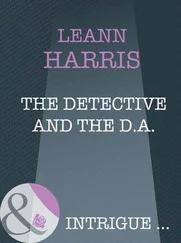Andrew Pepper - The Detective Branch
Здесь есть возможность читать онлайн «Andrew Pepper - The Detective Branch» весь текст электронной книги совершенно бесплатно (целиком полную версию без сокращений). В некоторых случаях можно слушать аудио, скачать через торрент в формате fb2 и присутствует краткое содержание. Жанр: Исторический детектив, на английском языке. Описание произведения, (предисловие) а так же отзывы посетителей доступны на портале библиотеки ЛибКат.
- Название:The Detective Branch
- Автор:
- Жанр:
- Год:неизвестен
- ISBN:нет данных
- Рейтинг книги:3 / 5. Голосов: 1
-
Избранное:Добавить в избранное
- Отзывы:
-
Ваша оценка:
- 60
- 1
- 2
- 3
- 4
- 5
The Detective Branch: краткое содержание, описание и аннотация
Предлагаем к чтению аннотацию, описание, краткое содержание или предисловие (зависит от того, что написал сам автор книги «The Detective Branch»). Если вы не нашли необходимую информацию о книге — напишите в комментариях, мы постараемся отыскать её.
The Detective Branch — читать онлайн бесплатно полную книгу (весь текст) целиком
Ниже представлен текст книги, разбитый по страницам. Система сохранения места последней прочитанной страницы, позволяет с удобством читать онлайн бесплатно книгу «The Detective Branch», без необходимости каждый раз заново искать на чём Вы остановились. Поставьте закладку, и сможете в любой момент перейти на страницу, на которой закончили чтение.
Интервал:
Закладка:
At three o’clock, Pyke went upstairs to find Wells, but the acting superintendent was ‘in the field’. Pyke asked one of the clerks whether there had been any developments and was told that nothing had been reported.
Outside, snow was falling. Pyke took a brief walk down to the river. The pavements and cobblestones had been turned into a carpet of white, dazzling against the dull Portland stone of the buildings, even in the ebbing light. He thought briefly about the scene at home; Felix had always loved playing in the snow; maybe he would be outside in the garden with Copper. For a moment or two, Pyke indulged this particular thought with a twinge of guilt that he wasn’t at home to see it for himself, but then it struck him that he’d been thinking about a memory that was eight or nine years old. Was it a coincidence that his happiest memories of time spent with his son were all in the distant past? Pyke suddenly felt very old; his son was now fourteen and wouldn’t be at home for much longer. What would become of them then? Would they still see each other?
Pulled back into the present by a barking dog, Pyke’s thoughts turned to the matter in hand; Ebenezer Druitt and his casual reference to the date of Guppy’s murder. He thought about the anonymous note and how this had brought both Malloy and Druitt to his attention. But who had sent him the letter? Was this person also the murderer and, if so, why had he wanted to bring No. 28 Broad Street into the equation? By the time Pyke got back to the relative warmth of his office, he could barely feel his ears and nose.
Wells visited him at about eight and then again just before eleven. He had nothing to report. It was strange, Pyke thought once he was alone, to be disappointed that no one had died; that no one had been murdered. At midnight, he pulled his coat around him and shut his eyes. He woke at two and then again at four. At half-past six, he got up and went outside to the tap in the yard. He’d intended to wash his face but the water in the pipe had frozen. Everywhere was white, any noise muffled by the covering of snow. At eight, when the first clerks arrived, Pyke’s suspicions were confirmed: nothing out of the ordinary had occurred during the night. A flower seller had frozen to death in Covent Garden and a tanner’s assistant had been stabbed and wounded in a brawl outside a tavern in Bermondsey. These would have to be looked into by either the Detective Branch or whichever division had jurisdiction for central and south-east London, but Pyke didn’t pay the cases any attention that morning. Instead, he paced up and down the corridor, wondering what had happened and how he had managed to get it so wrong.
By Wednesday afternoon, almost two days after the night of the thirteenth of December had passed, there was still no sign of a body. During this time Pyke had tried unsuccessfully to find Malloy and had been told by Mayne to give up on his ‘far-flung notion’ and concentrate his efforts on finding Hiley. In one ill-tempered meeting, an evidently furious Mayne had held Pyke personally responsible for his ‘reckless’ prediction that a murder would take place, and had berated himself for lending his support to Pyke in the first place.
‘How long would it take for someone to die if they were crucified?’ Pyke asked Whicher and Lockhart.
They were sitting in the main office drinking tea that one of the clerks had just brought for them.
‘It wouldn’t be immediate,’ Lockhart said. ‘That’s the point, isn’t it? To draw it out for as long as possible and inflict the most pain.’
Whicher looked at him, frowning. ‘Are you saying that our body may still be out there somewhere?’
‘Not exactly. Stephen Clough was stabbed, too, remember? That was the wound that killed him, according to the coroner.’
‘So?’
‘So why go to the effort of crucifying someone, only to stab them in the gut?’
Lockhart considered this. ‘Perhaps the crucifixion was some kind of symbolic act.’
‘In what sense?’ Pyke asked.
‘I don’t know.’ Lockhart brought the cup to his lips and sipped his tea. ‘To make it appear that the murder was religiously motivated?’
Whicher sat back. ‘Clough was nailed to a door in a busy part of the city. Maybe he was stabbed as an afterthought. If the murderer had just left him to die, Clough might have been able to identify him.’
They were both credible explanations.
‘What if the second death we’ve been expecting wasn’t reported to the police? Look at these.’ Eddie Lockhart showed Pyke the death notices he’d been reading in The Times. ‘Five of them, all from natural causes.’
‘If they all died from natural causes, I don’t see how they could be of any interest to us.’ Pyke yawned. He’d hardly slept in the past forty-eight hours.
‘But that’s just it. How do we know for certain that all these people did die of natural causes? Do you see my point?’
‘Anyone who dies in suspicious circumstances has to be seen by the coroner. You can’t just put someone in the ground.’
Lockhart shrugged. ‘It was just an idea.’
But it was the only idea any of them had had and so Pyke sent Lockhart and Whicher to collect a list from the coroners of everyone who had died in suspicious circumstances since Monday. They came back with three names. A retired bank clerk from Somers Town called Willis, who had stepped out in front of a fast-moving phaeton, a sanitary inspector from Walworth who’d died in his bed, and a bank director and alderman who’d collapsed suddenly and without explanation at his place of work. In addition, four still-unidentified men and women had frozen to death as a result of the cold weather.
Pyke asked whether there was any more information about the alderman. Lockhart shook his head.
‘Was the death reported in the newspaper?’
Frowning, Whicher went to retrieve The Times from his desk. ‘There was something, I believe.’ He looked through the copy he’d been reading earlier in the day but couldn’t find any mention of it. But when he retrieved the previous day’s newspaper from a pile under his desk, he found what he’d been looking for. He handed it to Pyke, open at the relevant page. There were few details about the death itself. Seemingly the man in question, Charles Harcourt Hogarth, had been working alone in his private chambers and had suffered a seizure or stroke. His body had been found the following morning by one of the porters. Pyke read on:
Charles Harcourt Hogarth, 55, was the second son of John Harcourt Hogarth. Educated at Eton college, he entered his father’s engineering firm at the age of eighteen. In 1808 he was admitted as a partner in the contracting firm Lovell and Lyne under whose stewardship the London to Sittingbourne and London to Epsom turnpikes were macadamised and part of the Regent’s canal was built. In 1820 he joined the board of the Regent-Colonial Bank and, in 1829, he was invited to join the City Corporation as a councilman. In 1835 he was elected for life to a Court of Aldermen which he served until his death and was thought to be a future candidate for the position of Lord Mayor. In his role as court Alderman, he was responsible for improving the state of the City of London’s roads and pavements and more recently he had spoken of the need to establish public baths and washhouses in the capital, the first of which is due to be founded in Goulston Square, Whitechapel. Charles Harcourt Hogarth is survived by his wife, Helen, and their children, Mark and George.
Putting down the newspaper, Pyke looked at Lockhart and then Whicher. ‘Go back to the coroner, find out exactly what happened and where the body is now.’
They returned about two hours later, and told Pyke that the coroner had confirmed the cause of death as a massive heart seizure and that the body had been taken to the family home in Chelsea in anticipation of the funeral, which was planned for the end of the week.
Читать дальшеИнтервал:
Закладка:
Похожие книги на «The Detective Branch»
Представляем Вашему вниманию похожие книги на «The Detective Branch» списком для выбора. Мы отобрали схожую по названию и смыслу литературу в надежде предоставить читателям больше вариантов отыскать новые, интересные, ещё непрочитанные произведения.
Обсуждение, отзывы о книге «The Detective Branch» и просто собственные мнения читателей. Оставьте ваши комментарии, напишите, что Вы думаете о произведении, его смысле или главных героях. Укажите что конкретно понравилось, а что нет, и почему Вы так считаете.
